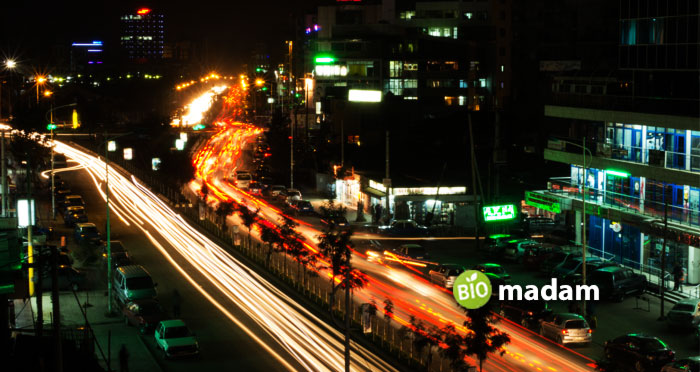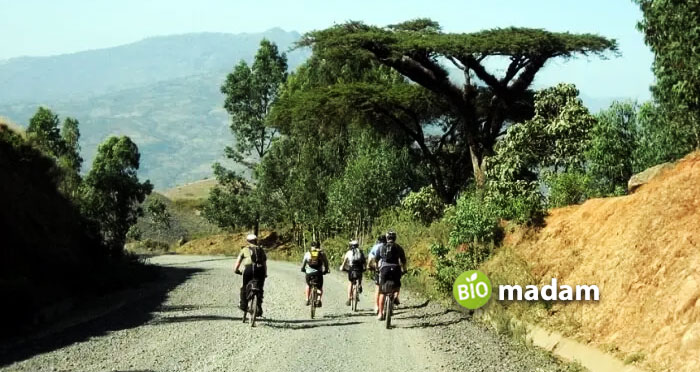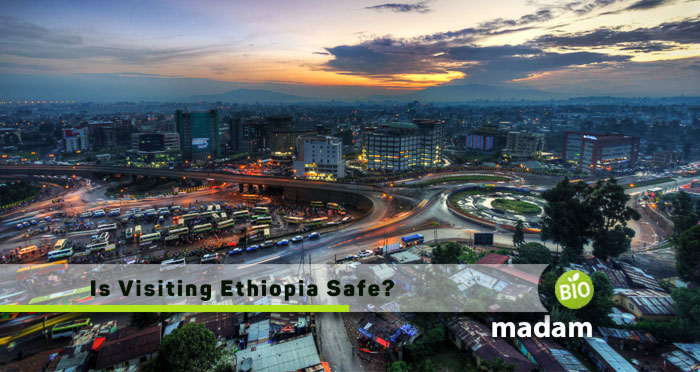Ethiopia, or the Federal Democratic Republic of Ethiopia, is a popular African country in the northeastern part of Africa, commonly known as the Horn of Africa. While you visit Africa, you might also want to enjoy a sneak peek into Ethiopia, but is it really safe to visit? Unfortunately, no.
Ethiopia is not a safe country, not even for its locals. The government’s irresponsible behavior regarding law and order in the region has turned the citizens into robbers and pickpockets. Thus, making Ethiopia one of the least safe countries to travel to.
In this article, you’ll know why it’s not a safer country and why you should avoid going there.
Why is Ethiopia Not Safe to Visit?
Street Crimes
Mugging, pickpocketing, and snatching are so common in Ethiopia that there is a hundred percent probability of being robbed when you step out of the house. The rate of street crime in the country is even higher at night.
Places like Addis Ababa have a high ratio of these crimes. Other high-crime areas in Ethiopia include Bole Atlas, Entoto, Meskel Square, Bole Medhanealem, Merkato, and Yeka Hills. Avoid walking alone and parking your car in a secured area to protect yourself better. If you have to visit Ethiopia inevitably, living in a secure area is critical.
Fraud
Although transactions in Ethiopia usually occur in cash, sometimes you might need to use your credit or debit card. Like other crimes, scammers don’t leave this opportunity and try their best to scam. To save yourself from such scammers, follow the following tips.
- Hide the keypad while entering your pin code
- Keep a keen eye on the individual you have handed your card to for transactions
- Read your account statements and see if there is any unauthorized transaction
- Use ATMs located in banks or secure public places
Harassment
Besides other crimes in the region, harassment is common, especially for foreigners. The confidence among locals to get away with any crime they commit allows them to harass women as well. There is no doubt that women are unsafe over there. If a woman is traveling alone, there is a high chance that she might get harassed.
Terrorism
Terrorists have captured Ethiopia secretly. They are not visible, but they still exist and perform attacks whenever they want to. If you don’t want to be their target, avoid going to places like; worship places, government institutes, shopping centers, and other tourist places.
In all, excluding Ethiopia from your Africa tour is best to avoid being scammed, robbed, harassed, kidnapped, or killed in terrorist activity. We would have loved to advise you to go to this part of Africa in good times, but this era does not seem safe for travel to Ethiopia. But again, if you must go to Ethiopia, a few places are a no-go in all conditions.

Places to Avoid When Visiting Ethiopia
Ethiopia has become a hub of crimes where various crimes occur, such as kidnapping, violence, civil unrest, robberies, sporadic violent conflict, etc. All these crimes have turned Ethiopia into a country to do crimes, not for visiting as a tourist. These crimes take place in different locations in Ethiopia. Below are the danger zones of the country:
Southern Nations and Nation People (SNNP) Region
Conflicts between the military and residents occur in this region occasionally. Residents have attacked transports and destroyed properties. At the same time, the army has also attacked in return. The situation is highly unexpected. Anything can happen anytime without any warning.
Eritrea
The residents of central Eritrea and the Tigray region of northern Ethiopia have been fighting the government with war crimes and human rights violations such as torture, sexual violence, and unlawful killings. Several peace agreements have been signed between both parties, including those in 2018, but they have not been fruitful so far.
Oromia Region
Besides the long list of crimes in Ethiopia, the civilians of West Shewa, East Shewa, and West Wollega Zones in Oromia also had to face airstrikes. This area also has a high occurrence of kidnappings and killings.
Kenya Border
To know why the border areas of Kenya are dangerous in Ethiopia, then only one name is enough to see the reason behind it. That name is Al-Shabaab, a terrorist living in Kenya’s border areas. His name is enough to maintain terror among people and make the area unsafe for tourists.
Somalia Border
The Somalia border is a place famous for cross-border attacks. It’s a place where groups of terrorists and hidden landmines exist. They might attack any neighboring countries without notice, causing damage to land and people in Ethiopia.
Tigray Region
A conflict was going on for two years between the Tigray People’s Liberation Front (TPLF) and the government of Ethiopia. Later on 2nd November 2022, an agreement was signed between both parties for the cessation of hostilities. However, the deal still needs to be fully implemented, and the region has a high risk of security issues. Moreover, going in and out of the Tigray region can be prohibited if you travel without notice.
Apart from the mentioned areas, the following are areas where you should avoid going due to crime occurrence:
• Sudan and South Sudan Border
• Afar Tigray Border
• Amhara Region
• Gambella and Benishangul Gumuz Region
Safety Concerns to Consider Before Visiting Ethiopia

Check News
Before you leave for Ethiopia, make sure to check local news channels to understand the present situation of the area and avoid high-risk regions. Check the news on political, economic, environmental, security, and medical conditions. If you need more time to check the information, at least look for that place’s political and safety requirements. Also, follow the social media channels, especially Twitter, to get the most up-to-date news.
Be Aware of the Surroundings
Stay aware of the surroundings by gaining knowledge of current affairs. Current affairs highly impact countries’ relationships with each other. If the current affairs are not going well, it can also be hazardous, and most of the time, the country’s people pay the price. So you should be aware of the current affairs of Ethiopia with other countries.
Shortage of Power Supply
There is a frequent need for more power in Ethiopia. This frequency level increases during the months from November to June. Due to the outage of power, various problems occur. Such as no street lights, so it gets difficult to drive at night, Gas stations cannot supply fuel due to the power shortage, refrigerators on the streets or restaurants don’t work due to the problem, etc. So to deal with such issues, have sufficient food and fuel. Make sure you have a power backup to charge your phone and laptop. Also, carry a flashlight with you.
Stay Away from Danger Zone Areas
Keep a clear goal of where you want to go and where not. You must know the red zone areas of Ethiopia so that you can take precautions according to them. Recent news updates can be immensely helpful in making the right decisions.
Road Safety
Due to poor governance, the conditions of the roads are not the best. There are no signs to guide the route or reflectors on roads. Apart from roads, drivers there make the situation even worse by driving recklessly besides knowing the conditions of the streets. Especially if we talk about Addis Ababa, the roads are incredibly distressing. Due to these road conditions, Ethiopia has a high rate of accidents.
You can take multiple precautions to keep yourself safe that are:
- Don’t travel at night
- Have a first-aid kit
- Keep your gas tank full
- Have GPS or a map with you
Complete Documents
You must check that you have complete documents that include; a passport, visa, international driving permit, and consent for travelers with minors. Keep photocopies of every paper. For the safe side, leave the original documents at the hotel when going out and take photocopies instead. Taking original documents can be dangerous, considering the chances of snatching and mugging on the streets.
In case you lose your passport, file a police report at the nearest police station immediately and request a copy of the report to apply for a new passport.
Immunizations
The CDC and WHO recommend vaccinations against Hepatitis A, hepatitis B, yellow fever, rabies, typhoid, meningitis, MMR, Tdap (tetanus, diphtheria, and pertussis), polio, chickenpox, pneumonia, influenza, and shingles. Furthermore, remember that some areas also have malaria, bilharzia, and chikungunya fever.
Look for the Reviews
To know more about Ethiopia’s security concerns, check other people’s reviews on ‘Country Security Reports for Ethiopia’ so you can decide whether to visit it.

Have a Backup Plan
You should keep a backup plan to face any emergency, including an evacuation plan. Refrain from entirely relying on the embassies over there.
Transport Concerns in Ethiopia
Only rely on public transport in Ethiopia as they are comparatively safe. Alternatively, you can use the transportation provided by your hotel or someone you know. Avoid trusting strangers on the road for a ride.
Buses
Buses in Ethiopia are usually overcrowded, making you suffer through your journey from one place to another.
Taxi
Traveling by taxi is the most unsafe option; as a tourist, you must be aware of the routes and the people there. But if you are in an emergency and have to take a taxi, choose the yellow ones, not the blue or white ones. Besides that, use those taxis that have meters so that the driver can not take advantage by charging you overprice.
Train
The train service is quite restricted and definitely not in the best possible condition. So avoid using the trains over there.
Self Driving
You can also drive a local car with a local driver’s license. You can use an International Driving Permit or your country’s license to obtain one. However, avoid driving near the border of Somalia, Kenya, or Sudan to protect yourself from carjacking or kidnapping. Also, avoid taking help when facing any problem in your car, as criminals are often looking out for such opportunities.
Local Customs and Laws
While visiting Ethiopia is not encouraged, you must take care of the local customs and laws to not land in any trouble:
- Always carry proof of identification, such as a photocopy of your passport, to avoid trouble.
- Avoid carrying a firearm, as it is a legal offense in Ethiopia.
- You cannot keep ivory with you, even in the form of jewelry.
- You may get arrested for writing about the country’s political unrest while you are in Ethiopia.
- Keep the receipts of souvenirs with you to stay clear of theft charges.
- Declare your laptop and filming equipment at the airport, as some recording devices require a special customs permit.
- Take permission from religious authorities before visiting churches.
- Do not indulge in LGBT activities, as it may lead to jail for up to 15 years.
- The day in Ethiopia changes at dawn and not midnight.
- Orthodox Christians in Ethiopia fast on Wednesdays and Fridays, whereas Muslims fast during Ramadan.
Smart Traveler Enrollment Program (STEP)
As a U.S. citizen, you should enroll in the Smart Traveler Enrollment Program (STEP). It is a free service for U.S. citizens that keeps them alert about the situation and connects them with the U.S. embassy. It’s the most trusted way for their citizens to rely on when going to a place like Ethiopia, where an emergency can occur at any time.

Is Ethiopia Safe for Tourists?
The short answer is No. It would be best if you did not travel to Ethiopia due to the crimes and conflicts between the government and armed groups that take place over there. The situations are so uncertain that you cannot plan your visit there. You won’t be mentally and physically safe in Ethiopia. So, it’s better to avoid going there. However, if you plan to shoot a documentary, you should follow the traveling advisory and consider security concerns.
How to Ensure Safety When in Ethiopia?
Ethiopia is not the safest travel choice, making it even more important to ensure safety when you visit alone or in a group. As they say, “Nobody knows a city better than the local,” you must choose a reliable tour operator to take you across Ethiopia. While it might not significantly reduce your chances of mugging or robbery, locals know how to deal with others. They will make it easy for you to communicate with law authorities if you land in unexpected trouble.
The Bottom Line
Ethiopia is a gorgeous country with a rich culture, but the country’s law and order situation has pushed people to stay away from this region. It is notorious for mugging, snatching, robberies, and even pickpocketing. People have also reported sexual harassment, violence, and terrorism. Thus, you must avoid traveling to the region. If you must go, stay away from Eritrea, Oromia, SNNP, Tigray, and Kenya and Somalia borders. Also, check the local political and weather conditions before going to Ethiopia to avoid high-risk areas.
FAQs
Is it safe to walk in Addis Ababa?
Addis Ababa is not the best area for taking a stroll at night due to violent crimes, including sexual assault. Make sure to consult your hotel before heading out.
Do I need a visa for Ethiopia?
All U.S. citizens need a visa to enter Ethiopia. You must get your e-visa before leaving for Ethiopia as travelers without a visa will not get entry into the region.
What is Ethiopia known for?
Ethiopia is known for its high-quality coffee and rich culture. But now, it is also known for disturbed political and local situations due to the lack of law enforcement.
How much does an Ethiopian visa cost?
You can get a 30-day single-entry visa for $82, while a 90-day single-entry visa costs around $200.
Is it hard to travel to Ethiopia?
While it is not hard to travel to Ethiopia, it is not really safe. Ethiopia has war conflict, street time, civil unrest, kidnapping, and terrorism. Avoid going to Eritrea and Tigray region due to civil unrest and conflict.

Cristina Silva has graduated from New York University and has written for the Associated Press, the Tampa Bay Times, Salon, and NPR. She has reported from Mexico, Honduras, Cuba, Germany, Italy, and Bahrain, as well as from across the United States.

